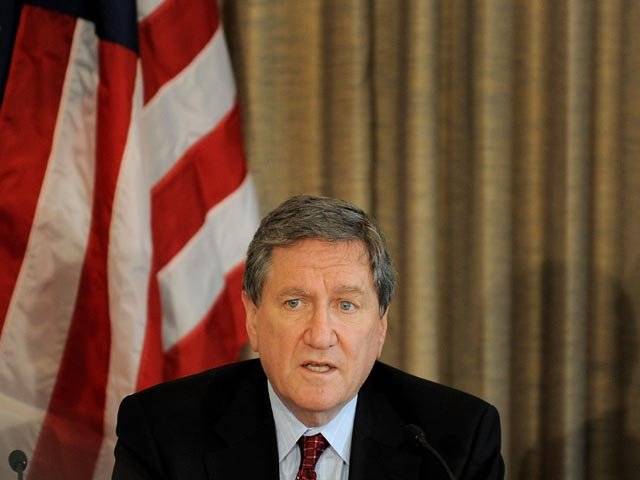Richard Holbrooke has been called many things in his long career: diplomat, peacemaker, bruiser and, in the court of President Hamid Karzai, the Devil. In Kabul a week after it became clear that President Karzai would win a second term without a second round of voting, the most conspicuous truth about President Obamas special representative to Afghanistan and Pakistan, is his absence. The man who forced Slobodan Milosevic to the negotiating table and longed to be rewarded with the job of Secretary of State was instead handed the toughest regional portfolio on the planet at the start of President Obamas term. He has since hired dozens of advisers and set out goals on reforming everything from Afghanistans poppy fields to its notoriously porous prisons. But his critics say he has failed to broker a stable political settlement with President Karzai, largely because relations between the two have broken down. The result is whispering in Washington about how much longer he can retain his job. It is a typical Washington parlour game about whos up, whos down, a disdainful State Department spokesman said last month. If the game had a name it would be Where in the world is Holbrooke?, and the answers are revealing. When Senator John Kerry was immersed in ultimately successful negotiations with President Karzai in Kabul last month, Mr Holbrooke was in Washington. When Hillary Clinton was in Pakistan last week, Mr Holbrooke was with her. Then, instead of including Kabul in his itinerary, he flew home. Between those trips he held a rare open briefing widely regarded as intended to show that he had not been sidelined by Mr Kerry. Asked about his personal relations with President Karzai, Mr Holbrooke called them fine . . . correct . . . appropriate, and said he was looking forward to seeing the Afghan leader in a few days. More than a few days and a dramatic climb-down by President Karzais main opponent have passed since, and Mr Holbrooke remains in Washington. The optics are not great surrounding him right now, one fellow diplomat said yesterday. A close Washington confidant of Mr Holbrookes admitted: It would be understandable if people thought he was somewhat missing in action. His staff retort that during the most intense US foreign strategy review since Vietnam, he needs to be in Washington advising his immediate boss, Mrs Clinton, but also briefing President Obama privately and without her knowledge. Yet the case against Mr Holbrooke involves more than geography. He has needlessly antagonised the one man with whom he should have cultivated a rapport, aides to a former US Ambassador to Kabul say. He has also misused six months, from April to September, that should have been spent planning for the dire political contingencies that he knew were looming. Mr Holbrooke confronted President Karzai over his failure to arrest the warlord Abdul Rashid Dostum last year and encouraged opposition figures to run against him. In August he refused to join in President Karzais celebrations after his first-round election win, insisting that a second round would be required. By some accounts this inadvertently sabotaged an opposition move to unite behind a single candidate, and it took Senator Kerry to make President Karzai accept the idea of a second ballot. Team Holbrooke, meanwhile, is accused of having a confused decision-making apparatus with memos and analysis more notable for enthusiasm than acuity. Mr Holbrookes lack of knowledge of Afghanistan has also been noted in Kabul and Washington. Somehow the political element never got it together and said, 'What is the Plan B and Plan C? an ally of the envoy told The Times. 'What do we do if theres a legitimacy crisis? Faced with just such a crisis, many in Washington now believe that Mr Holbrooke will have to take the blame.(The Times)
Friday, April 19, 2024
Holbrookes future unclear as fallout from Karzai rift reaches Washington: report

President calls for meaningful dialogue to end polarisation
April 19, 2024
KP minister briefed on issues about sales tax on services
April 19, 2024
64th anniversary of freedom fighter Mirzali Khan marked
April 19, 2024
893,000 students appear in SSC exams in KP
April 19, 2024
Hepatitis Challenge
April 18, 2024
IMF Predictions
April 18, 2024
Wheat War
April 18, 2024
Rail Revival
April 17, 2024
Addressing Climate Change
April 17, 2024
Justice denied
April 18, 2024
AI dilemmas unveiled
April 18, 2024
Tax tangle
April 18, 2024
Workforce inequality
April 17, 2024
New partnerships
April 17, 2024
ePaper - Nawaiwaqt
Advertisement
Nawaiwaqt Group | Copyright © 2024





